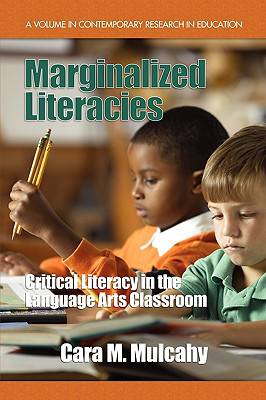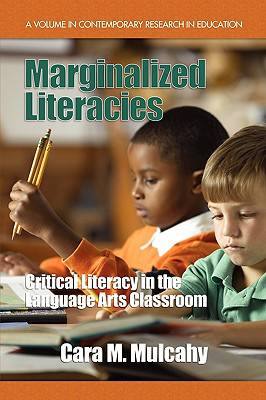
- Retrait gratuit dans votre magasin Club
- 7.000.000 titres dans notre catalogue
- Payer en toute sécurité
- Toujours un magasin près de chez vous
- Retrait gratuit dans votre magasin Club
- 7.000.000 titres dans notre catalogue
- Payer en toute sécurité
- Toujours un magasin près de chez vous
84,95 €
+ 169 points
Format
Description
A volume in Contemporary Research in Education Series Editor Terry A. Osborn, Fordham University Functional literacy, cultural literacy, and progressive literacy are just a few of the many terms one can invoke when attempting to define literacy. From a critical perspective, for a democratic society to exist, a critical literacy is of crucial importance. Critical literacy aims to empower individuals and transform society. It is grounded in critical theory and, like critical pedagogy, investigates ways in which social, cultural, racial, sexual, and economic inequalities are reproduced. By investigating the ideological, political, and social structures that perpetuate such inequalities, it hopes to raise consciousness and move towards creating a more socially just society. This book examines the approaches set forth by Atwell, Calkins, and Rief in their books, In the Middle (1998); The Art of Teaching Writing (1994); and Seeking Diversity (1992), respectively. This book is of relevance to teacher educators and English Language Arts teachers. It enables one to become familiar with the main components of the Readers'/Writers' workshop and develop an awareness of how literacy may be conceptualized and reconceptualized through this approach. Teacher educators will find this text useful for raising preservice teachers' awareness of the ideologies that inform literacy education and in developing their understanding for how students are positioned socially, culturally, politically and economically by such ideologies. English Language Arts teachers will find this book informative in understanding how they can be positioned by teacher texts to teach towards certain ideologies of literacy. Finally, it allows teacher educators and English Language Arts teachers to consider what kind of literacy education is provided for through the Readers'/Writers' workshop, and whether space may be negotiated within the Readers'/Writers' workshop, for the teaching of critical literacy.
Spécifications
Parties prenantes
- Auteur(s) :
- Editeur:
Contenu
- Nombre de pages :
- 178
- Langue:
- Anglais
- Collection :
Caractéristiques
- EAN:
- 9781607524540
- Date de parution :
- 13-05-10
- Format:
- Livre broché
- Format numérique:
- Trade paperback (VS)
- Dimensions :
- 156 mm x 234 mm
- Poids :
- 258 g







